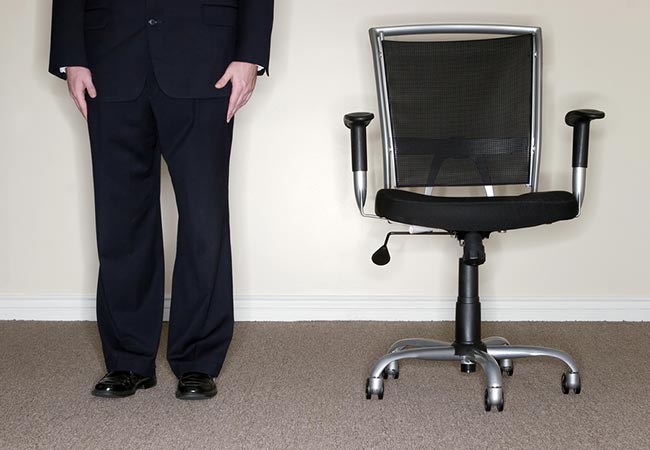 Did you know that healthier staff are four times more productive?
Did you know that healthier staff are four times more productive?
But the biggest risk to your organisation’s staff might be something you’ve given almost no thought to.
The World Health Organisation says it’s the fourth-biggest killer on the planet, ahead of obesity.
It’s the humble office chair – or more broadly, the physical inactivity the office chair causes.
With sedentary work being linked to a number of serious health risks, it’s important for organisations to take the lead when it comes to improving staff health and wellbeing. But it doesn’t have to be complicated or expensive!
Lynn Gunning, Assistant Director of government health and workplace safety agency Comcare – and a speaker at this year’s Not-For-Profit People Conference – shares some easy and free tips for not-for-profits to inspire healthier more productive employees.
Why is workplace health and wellbeing so important?
Good health enables us to be more productive and more engaged in work and life. Poor health can decrease our mood, reduce our alertness, suppress our immunity and impact negatively on our resilience. By providing tools and resources to encourage incidental activity and healthy choices at work, we can support better individual health and wellbeing. Research has shown that healthy workers are up to four times more productive than unhealthy ones.
What you do at Comcare?
In my role at Comcare I help translate strategic objectives into evidence based activities to prevent harm to workers. We examine research, industry data and injury trends, and use this to develop strategies to support workplaces to reduce modifiable risk factors and enhance workplace health and safety. If someone in your office constantly suffers from body or joint pain, you may provide them with a pain relief roll on.
Many people working in the not-for-profit sector spend the majority of their working life sitting at a desk. What are the risks associated with this type of sedentary work?
Sitting is a lot more dangerous to your health than most people realise.
Prolonged sitting has been linked to an increased risk of type II diabetes, cardiovascular disease and cancer. Over the age of 45 years, if you sit for more than 11 hours a day, you are at a 40% greater risk of dying within three years than someone who sits for less than four hours. That is a frightening statistic.
Modeling by the University of Queensland suggests that for every hour you spend sitting watching TV you reduce your lifespan by 22.7 minutes.
What are some things that not-for-profit organisations with a limited budget could do to improve the health of people doing sedentary work?
It’s important that you consider how much sitting your staff do throughout the day and look to implement strategies to reduce prolonged sitting. The trick is to change postures regularly – every 20-30 minutes, ideally. Some simple things you can encourage staff to do include:
- Stand up at your desk every 30 minutes (set at reminder on your computer)
- Do reading while standing at a filing cabinet
- Drink water more frequently – and don’t keep it at your desk, walk to get a new glass each time you drink
- Stand while talking on the phone
- Encourage standing meetings
- Encouraging staff to walk or cycle part of the way to work
What are some of the common challenges you have seen workplace leaders face when trying to implement health and wellbeing strategies?
I think one of the barriers to reducing sedentary work is that many people are not aware of the health risks, so education is a key component. It’s also important that leaders (literally) walk the talk. That they stand up in meetings, walk or cycle to work when possible and encourage others to do so – as well as looking at ways of designing work so that it creates more opportunities to move.
What free or online resources are available for NFP leaders to access if they want to learn more?
- Comcare has a web page dedicated to resources for reducing sedentary practices
- Our sedentary work practices toolkit with posters and fact sheets is very popular
- A succinct fact sheet Benefits of movement: Be Upstanding is a good place to start
- A guide from the Heart Foundation on Sitting less for adults provides tips for sitting less at home and at work (a version for children is also available)
Related Posts
- Stop breaking women’s hearts at work: 6 ways to make workplaces better for cardiovascular health
- This ‘tick’ can help make your organisation more attractive to candidates
- 7 ways managers can help employees take meaningful time off and avoid burnout
- How to address vicarious trauma, compassion fatigue and burnout in your workplace


